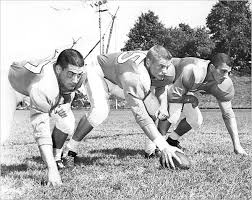
Spot-On Coaching Lessons From Bill Campbell, The Trillion Dollar Coach
Bill Campbell’s extraordinary journey as a coach began long before he became Silicon Valley’s most trusted advisor. Campbell, known as “The Trillion Dollar Coach” who coached Steve Jobs, Larry Page, Eric Schmidt and others, first made his mark on the football field. After captaining Columbia University’s 1961 Ivy League championship team and earning All-Ivy League honors, he went on to coach at both Boston College and his alma mater, Columbia, serving as head football coach for six seasons. Though his record at Columbia was modest, Campbell’s time on the sidelines was formative: he learned the power of resilience, teamwork, and the importance of not making excuses—lessons that would later shape his unique approach to coaching business leaders.
One defining moment came during a tough loss against Princeton, a game Columbia led early but ultimately lost. Campbell reflected on the exhaustion and disappointment but, inspired by his own coach, refused to make excuses. Instead, he internalized the value of accountability and the necessity of pushing through adversity. These early experiences taught Campbell that true coaching is about developing character, fostering trust, and helping people exceed their own expectations—principles that became the bedrock of his business coaching philosophy.
Common Coaching Mistakes
Most leaders want to be great coaches, yet many fall into common traps that undermine their impact. Bill Campbell saw firsthand how even the most talented executives often miss the mark when it comes to coaching their teams.
- Confusing Management with Coaching – Many leaders believe that giving orders or solving problems for their team is coaching. In reality, effective coaching is about empowering people to make decisions and grow, not micromanaging or dictating solutions.
- Focusing on Tasks Over People – Leaders often get caught up in operational details and forget that their primary job is to help people excel and develop. Campbell believed that people are the foundation of every company’s success, and that the well-being and growth of employees should be a leader’s top priority.
- Neglecting Trust and Psychological Safety – Without trust, feedback falls flat and teams underperform. Leaders sometimes fail to build the “envelope of trust” that Campbell saw as essential for honest dialogue, risk-taking, and high performance.
- Coaching the Uncoachable – Trying to coach people who aren’t open to feedback or growth is a waste of time and energy. Campbell insisted that leaders should invest in those who are coachable—curious, humble, and willing to learn.
Top Tips from Bill Campbell to Become a Stronger Leader
Implement this tips to level up your coaching which in turn will drive greater performance and commitment from your team:
- Build an Envelope of Trust – Trust is the foundation of all great coaching relationships. Campbell modeled loyalty, integrity, and discretion, creating psychological safety so people could be honest about challenges and mistakes. Action: Keep your word, be transparent, and listen with empathy. Make it safe for people to speak up and share concerns.
- Practice Free-Form Listening – Campbell was known for his undivided attention in conversations. He listened deeply, asked probing questions, and sought to understand before offering advice. Action: In your next one-on-one, put away distractions and focus entirely on the person. Ask open-ended questions and resist the urge to jump in with solutions.
- Work the Team, Then the Problem – Campbell believed that the right team, working together, could solve any problem. He prioritized building strong teams over solving issues himself. Action: When facing a challenge, first assess if the right people are on the team and if they’re collaborating effectively. Facilitate open discussion and ensure all voices are heard.
- Be the Evangelist for Courage – Great leaders instill confidence and push people beyond their self-imposed limits. Campbell encouraged leaders to believe in their teams more than they believed in themselves. Action: Publicly recognize risk-taking and effort, not just results. Offer encouragement and support when team members step outside their comfort zones.
- Only Coach the Coachable – Focus your energy on those willing to grow. Coachability requires humility, openness, and a desire to improve. Action: Identify who on your team is truly coachable. Invest your time in their development, and don’t waste energy on those resistant to feedback.
Bill Campbell’s legacy is a blueprint for leaders who want to build high-performing teams and lasting companies. By avoiding common coaching mistakes and embracing Campbell’s core principles—trust, listening, teamwork, courage, and coachability—founders, CEOs, and executive teams can become the leaders their people need and their organizations deserve. If you have the time, listen to or read “The Trillion Dollar Coach.” It will be well worth your investment